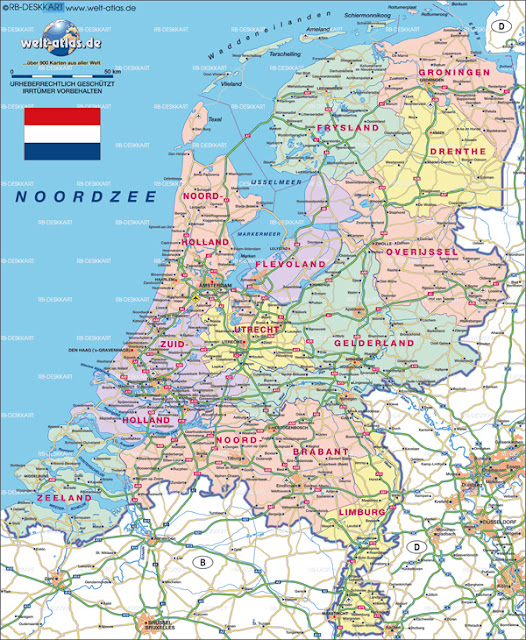
There is a cafe on the borderline between Netherlands and Belgium.
Pink forest in The Netherlands
The Netherlands
Tulip
Field of Pink Onions Wassenaar in the Schieland Region Holland The Netherlands
Amsterdam
began building its famous canals in the 17th century during the Dutch
Golden Age. The three main canals, Herengracht, Prinsengracht, and
Keizersgracht form concentric belts around the city, known as the
grachtengordel. Today there are over 100 km (60 miles) of canals and
1,500 bridges. Alongside the main canals are 1550 monumental buildings.
Leiden is known for the oldest university in the Netherlands, the
birthplace of Rembrandt and its beautiful canals. The two branches of
the Old Rhine enter Leiden on the east and unite in the city center
which also contains several smaller canals. The old center of Leiden is
one of the largest 17th century town centers in the Netherlands, second
only to Amsterdam.
The West Frisian Islands or Waddeneilanden in Dutch are a chain of
islands in the North Sea off the Dutch coast. They continue further east
as the German East Frisian Islands. The islands separate the North Sea
from the shallow Wadden Sea, with tidal mud flats. Under the supervision
of licensed guides several islands can be reached by walking on the
mudflats during low tides. On the islands cycling is the most favorable
means of transport.
More than 1.000 old windmills still exist in the Netherlands. The
largest concentration of Dutch windmills can be found near the village
of Kinderdijk (“Children’s dike”). To drain the excess water from the
polders, which are situated below sea-levels, 19 windmills were built
around 1740. They have been well preserved to the present day and are
now popular tourist attractions in the Netherlands.
The Hoge Veluwe National Park is one of the largest continuous nature
reserves in the Netherlands, consisting of heathlands, sand dunes, and
woodlands. The Kröller-Müller Museum with it large collection of
paintings by Vincent van Gogh is located within the park. Bicycles are
available for free to visitors of the Hoge Veluwe, with much of the area
being inaccessible by car.



















No comments:
Post a Comment